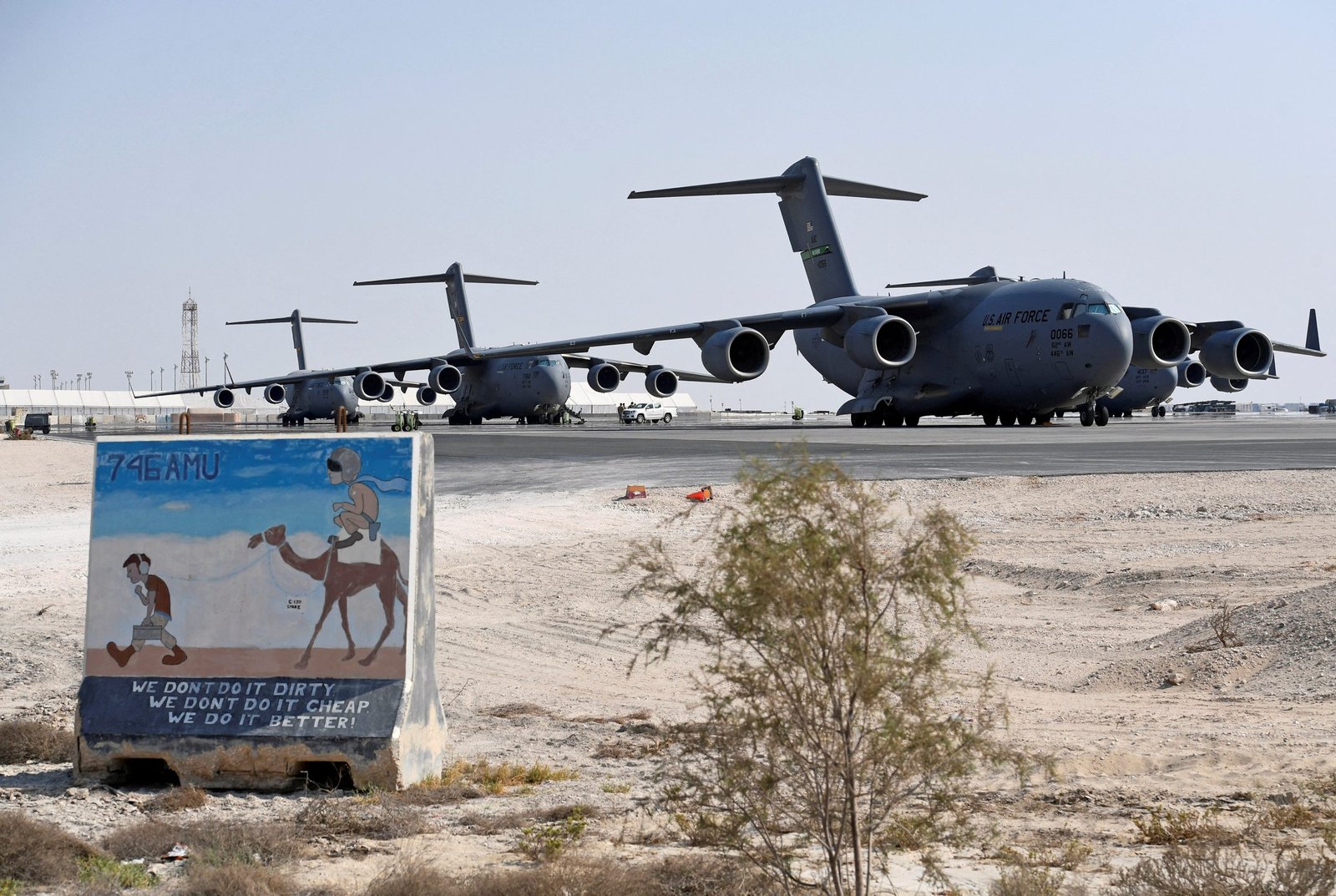U.S President Donald Trump has been working to gain the support of the Gulf states as it intensifies its “maximum pressure” campaign against Tehran.
Saudi Arabia, the United Arab Emirates (UAE), Qatar, and Kuwait have all informed Washington that they will not permit U.S. warplanes to use their airspace or military bases for any operations against Iran, a senior U.S. official said.
“They do not want to be drawn in,” the official, speaking anonymously, told Middle East Eye.
The ban also extends to refuelling and recovery missions, the official added.
U.S President Donald Trump has been working to gain the support of the Gulf states as it intensifies its “maximum pressure” campaign against Tehran, and earlier this week announced visits to Saudi Arabia and Qatar as early as May.
On Sunday, Trump threatened that if Iran does not agree to a new nuclear deal, “there will be bombs like they’ve never seen before”.
With the Gulf states’ refusal of allowing Washington to use their airspaces, the U.S. turned to deploying B-2 bombers to its military base on Diego Garcia, an island in the Indian Ocean.
Diego Garcia, a key strategic location previously used during military operations in Iraq, is located approximately 5,300km from Iran, well within the B-2’s operational range.
These bombers, known for their ability to penetrate dense anti-aircraft defences, are capable of carrying 30,000-pound “bunker-buster” bombs, which could be used against Iran’s fortified nuclear sites.
According to a report in the UK’s Telegraph, senior Iranian military officials have urged their leadership to authorise a strike if Trump’s threats against Iran intensify.
An Iranian official cited in the report emphasised that discussions about targeting Diego Garcia have increased significantly since the deployment of U.S. bombers there.
“The response to Trump’s threats must come through action, not words. Every base in the region is within the range of our missiles,” the official stated.
Iran has previously warned Gulf states that any assistance in facilitating U.S. or Israeli military actions will provoke a response from Tehran.
“Iran made it clear that any action by a Persian Gulf country against Tehran, whether through the use of airspace or military bases, will be regarded by Tehran as an action taken by the entire group, and Tehran will respond accordingly,” a senior Iranian official told Reuters last October.
Since the outbreak of the Israeli war on the Gaza Strip in October 2023, the U.S. military has notably expanded its presence in the Middle East, with flight tracking data indicates a 50 percent surge in U.S. military cargo flights to the region.
Furthermore, Washington has deployed two aircraft carriers and reassigned the USS Carl Vinson from the Pacific to the Middle East.
Currently, the U.S. maintains around 40,000 troops in the Gulf, stationed across key bases, including Qatar’s Al Udeid Air Base, Saudi Arabia’s Prince Sultan Air Base, and Bahrain’s U.S. Fifth Fleet headquarters.
Copyright 2025. All Rights Reserved. Doha News
Input your search keywords and press Enter.
Gulf states reject use of airspace for U.S. attacks on Iran – Doha News | Qatar



